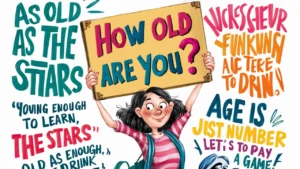Losing a loved one is one of life’s most challenging experiences, and receiving condolences can provide much-needed comfort.
Responding to these messages with care and gratitude is essential to maintaining connections and acknowledging the support offered during a difficult time.
Here are 30 ways to reply to a condolence message, each crafted to express appreciation and foster continued connection.
Thank You for Your Condolences

Expressing gratitude for their sympathy and support is a straightforward yet heartfelt response, showing appreciation for their gesture during your time of loss.
Example:
Friend:
“My deepest condolences for your loss.”
You:
“Thank you for your condolences. Your support means a lot to me.”
This response acknowledges their sympathy and begins a conversation about their support.
Your Kind Words Mean a Lot to Me
Acknowledging the emotional impact of their message shows that their words have touched you deeply during this difficult period.
Example:
Friend:
“Sending you love and strength during this time.”
You:
“Your kind words mean a lot to me. They bring comfort.”
By emphasizing the significance of their words, you convey how their support is helping you cope.
I Appreciate Your Support During This Difficult Time
Thanking them for being there for you shows recognition of their presence and the support they’ve provided in your moment of grief.
Example:
Friend:
“I’m here for you if you need anything.”
You:
“I appreciate your support during this difficult time. It means a great deal to me.”
This reply affirms their role in your support system and opens the door for further connection.
Your Thoughtfulness Is Truly Appreciated
Recognizing their gesture of kindness acknowledges the effort they’ve made to reach out and offer condolences.
Example:
Friend:
“Thinking of you and your family during this sad time.”
You:
“Your thoughtfulness is truly appreciated. Thank you for reaching out.”
By highlighting their thoughtfulness, you validate their efforts to comfort you.
Your Condolence Has Touched My Heart
Expressing how their message has affected you emotionally shows the impact their condolences have had during your period of mourning.
Example:
Friend:
“Sending heartfelt condolences to you and your family.”
You:
“Your condolence has touched my heart. Thank you for your kind words.”
This response reflects the emotional resonance of their message and deepens your connection.
Your Words Bring Comfort to My Family and Me
Sharing how their condolences have helped in comforting you and your family acknowledges the supportive role their message has played.
Example:
Friend:
“Wishing you peace and comfort during this time of loss.”
You:
“Your words bring comfort to my family and me. Thank you for your support.”
This response not only thanks them but also emphasizes the broader impact of their words.
I Am Grateful for Your Support and Understanding
Appreciating their empathy and compassion shows gratitude for their ability to understand and support you during this challenging period.
Example:
Friend:
“My heart goes out to you. Please know I’m here for you.”
You:
“I am grateful for your support and understanding. Thank you for being there.”
Acknowledging their empathy strengthens your connection and reinforces their supportive role.
Your Condolences Have Meant a Great Deal to Me
Expressing the significance of their condolences acknowledges the impact their message has had on you during this time of grief.
Example:
Friend:
“Sending you love and strength. I’m here if you need anything.”
You:
“Your condolences have meant a great deal to me. Thank you for your kindness.”
This response emphasizes how their message has helped you cope with your loss.
Thank You for Thinking of Us During This Time

Acknowledging their consideration and support shows appreciation for their efforts to reach out and offer condolences.
Example:
Friend:
“Sending healing prayers and comforting hugs during this difficult time.”
You:
“Thank you for thinking of us during this time. Your support is deeply appreciated.”
This reply affirms their thoughtfulness and the impact of their supportive message.
Your Kindness Is a Source of Strength for Me
Recognizing their role in providing support emphasizes how their kindness has been instrumental in helping you through your grief.
Example:
Friend:
“I’m so sorry for your loss. Sending you strength and warmth.”
You:
“Your kindness is a source of strength for me. Thank you for your support.”
By highlighting their kindness, you emphasize its positive impact on your well-being.
Your Sympathy Has Brought Us Comfort
Acknowledging the comfort their message has provided shows how their sympathy has helped ease your pain during this difficult period.
Example:
Friend:
“Sending heartfelt condolences to you and your family.”
You:
“Your sympathy has brought us comfort. Thank you for your caring words.”
This response underscores the supportive role their condolences have played.
Your Thoughtful Words Have Touched My Heart
Expressing how their message has impacted you emotionally shows the deep emotional connection their condolences have fostered.
Example:
Friend:
“I’m thinking of you and your family. Sending love and strength.”
You:
“Your thoughtful words have touched my heart. Thank you for your support.”
This response reflects the emotional resonance of their message and strengthens your bond.
I Am Deeply Touched by Your Thoughtfulness
Sharing your emotional response to their condolences reflects the profound impact their thoughtful message has had on you.
Example:
Friend:
“Please accept my condolences. Thinking of you during this difficult time.”
You:
“I am deeply touched by your thoughtfulness. Thank you for your heartfelt message.”
This reply conveys the depth of your emotional reaction to their supportive words.
Your Support Means More Than Words Can Express
Acknowledging the depth of their support shows how much their presence and condolences mean to you during your time of loss.
Example:
Friend:
“Sending you love and strength. I’m here if you need anything.”
You:
“Your support means more than words can express. Thank you for being there for me.”
This response emphasizes the profound impact of their support on your well-being.
Thank You for Reaching Out to Us
Appreciating their effort to connect during a difficult time shows gratitude for their initiative in offering condolences.
Example:
Friend:
“My condolences to you and your family. Thinking of you.”
You:
“Thank you for reaching out to us. Your condolences are deeply appreciated.”
This reply affirms their supportive role and encourages continued communication.
Your Condolence Message Was Heartwarming
Expressing appreciation for the sentiment in their message acknowledges the warmth and comfort their condolences have provided.
Example:
Friend:
“Wishing you peace and comfort during this difficult time.”
You:
“Your condolence message was heartwarming. Thank you for your comforting words.”
This response highlights the positive impact of their heartfelt message on your emotional state.
Your Kindness Has Been a Beacon of Light

Acknowledging their role in providing comfort and support emphasizes how their kindness has been a guiding light during your time of grief.
Example:
Friend:
“Sending love and strength to you and your family.”
You:
“Your kindness has been a beacon of light. Thank you for your support.”
By highlighting their kindness, you underscore its positive influence on your well-being.
Your Condolences Have Been a Comforting Reminder
Expressing how their message has provided solace acknowledges the comfort their condolences have brought during a challenging period.
Example:
Friend:
“My thoughts are with you and your family during this time.”
You:
“Your condolences have been a comforting reminder. Thank you for your support.”
This response emphasizes the role of their message in providing emotional comfort.
I Am Moved by Your Compassion and Support
Sharing your emotional reaction to their message reflects how deeply their compassion and support have affected you.
Example:
Friend:
“I’m here for you. Sending love and hugs.”
You:
“I am moved by your compassion and support. Thank you for being there for me.”
This reply conveys the emotional impact of their supportive gestures.
Your Condolences Have Been a Source of Strength
Acknowledging the strength their message has provided shows how their condolences have helped you cope during a difficult period.
Example:
Friend:
“Sending you strength and warmth during this tough time.”
You:
“Your condolences have been a source of strength. Thank you for your supportive words.”
This response emphasizes their role in providing emotional resilience during your grief.
Your Thoughtful Gesture Is Truly Appreciated
Expressing gratitude for their thoughtful gesture acknowledges the effort they’ve made to offer comfort and support.
Example:
Friend:
“Thinking of you and your family. My deepest condolences.”
You:
“Your thoughtful gesture is truly appreciated. Thank you for your heartfelt condolences.”
This response affirms their supportive role and validates their effort to comfort you.
Your Words Have Brought Us Peace
Acknowledging the peace their message has brought shows how their condolences have helped bring emotional calm during a turbulent time.
Example:
Friend:
“Sending love and healing thoughts. My condolences to you.”
You:
“Your words have brought us peace. Thank you for your comforting message.”
This reply emphasizes the positive impact of their supportive words on your emotional well-being.
I Am Grateful for Your Kindness and Support
Appreciating their kindness and support during a difficult time shows gratitude for their presence and condolences.
Example:
Friend:
“Thinking of you and your family. Sending strength.”
You:
“I am grateful for your kindness and support. Thank you for your thoughtful message.”
This response acknowledges their role in providing emotional support and comfort.
Your Condolence Message Was Heartfelt
Acknowledging the sincerity of their message reflects appreciation for the genuine sentiment conveyed in their condolences.
Example:
Friend:
“My thoughts are with you during this time. Sending love.”
You:
“Your condolence message was heartfelt. Thank you for your sincere words.”
This reply emphasizes the emotional authenticity of their supportive message.
Thank You for Your Loving Words

Appreciating the love conveyed in their message shows gratitude for the affection and care expressed during your time of loss.
Example:
Friend:
“Sending love and healing prayers to you and your family.”
You:
“Thank you for your loving words. They mean a lot to me during this difficult time.”
This response emphasizes the emotional warmth of their supportive message.
Your Thoughtful Message Means the World to Me
Expressing the significance of their message shows how deeply their condolences have affected you and your family.
Example:
Friend:
“Wishing you strength and peace during this difficult time.”
You:
“Your thoughtful message means the world to me. Thank you for your comforting words.”
This reply reflects the profound impact of their supportive message on your emotional state.
I Am Grateful to Have Your Support
Acknowledging their ongoing support shows appreciation for their continued presence and comfort during your period of grief.
Example:
Friend:
“My condolences to you and your family. Sending you strength.”
You:
“I am grateful to have your support. Thank you for being there for me.”
This response affirms their role in your support system and encourages continued connection.
Your Condolences Have Been a Comforting Presence
Expressing how their message has provided comfort acknowledges the supportive role their condolences have played during a challenging time.
Example:
Friend:
“Thinking of you and your family. Sending love and support.”
You:
“Your condolences have been a comforting presence. Thank you for your kind words.”
This reply underscores the emotional solace provided by their supportive message.
Your Kind Words Have Touched Our Hearts
Acknowledging the emotional impact of their message shows how deeply their condolences have resonated with you and your famiy
Example:
“Sending heartfelt condolences to you all.”
You:
“Your kind words have touched our hearts. Thank you for your thoughtful message.”
This response reflects the emotional connection forged through their supportive words.
Your Support Has Been Invaluable to Us

Expressing the value of their support shows how essential their presence and condolences have been during your period of mourning.
Example:
Friend:
“My thoughts are with you. Sending love and support.”
You:
“Your support has been invaluable to us. Thank you for being there during this difficult time.”
This reply emphasizes the importance of their support in helping you cope with your loss.
These responses are designed to convey appreciation, acknowledge the emotional support received, and maintain a meaningful connection with those offering condolences. Each reply can be tailored to fit the specific relationship and context of the condolence message, ensuring that your gratitude and emotional state are effectively communicated.

Nicholas Clark is the visionary behind ReplySwift.com. With a talent for crafting concise and impactful responses, Nicholas helps others communicate with clarity and confidence. On ReplySwift.com, he provides expert advice, practical templates, and valuable insights to enhance every reply.












